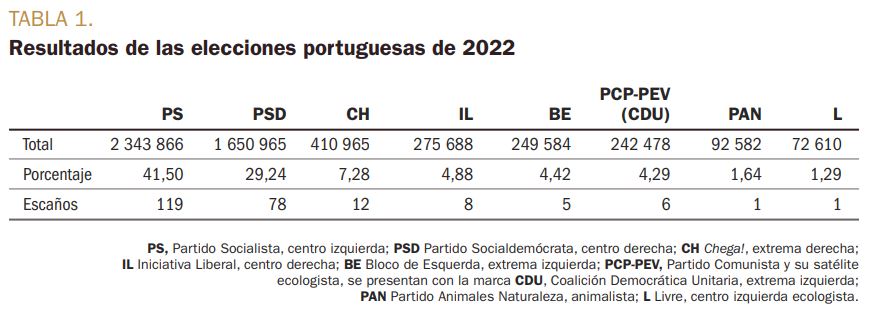Diplomacy
What in at stake in the portuguese elections of march 10, 2024?

Image Source : Shutterstock
Subscribe to our weekly newsletters for free
If you want to subscribe to World & New World Newsletter, please enter
your e-mail
Diplomacy

Image Source : Shutterstock
First Published in: Mar.04,2024
Mar.29, 2024
The first thing to note is that this is an early election since the President of the Republic, Marcelo Rebelo de Sousa, decided to dissolve the Parliament because of the corruption scandal involving António Costa, the socialist prime minister, who resigned on November 7, 2023. Costa´s resignation was agreed with the President of the Republic, and this explains the long period of time given to the Socialist Party so that it could recompose its leadership and face elections. The President of Portugal, elected by direct suffrage, has the power to dissolve the Parliament, even if the Government enjoys majority support as was the case, a prerogative reminiscent of the monarch in the old constitutional monarchy. The new leader of the Socialist Party is Pedro Nuno de Oliviera Santos, former Minister of Infrastructure and Housing under Costa and an enthusiastic supporter of the government agreements with the far left, known in Portugal as the “geringonça”. This data is important because it signifies that the radical sector of the Socialist Party has triumphed over the traditional moderate wing, and therefore, if the parliamentary numbers add up, a government like Costa’s first one in 2015 could be repeated. In that scenario, after losing elections, the Socialist Party was able to form a government with the support of the Communist Party and the Bloco de Esquerda. A novelty that deeply altered what had been until then the Portuguese party system. It is also relevant that, as a minister, Santos blocked the high-speed connection between Madrid and Lisbon, an infrastructure that should have been completed decades ago, and displayed a provocative and swaggering rhetoric in his relations with Spain. As a compliment, he has been dubbed as the Portuguese Pedro Sánchez. However, the chances of him reaching the government seem remote. That is why Santos has stated that if the center-right, which is running under the acronym of its historic coalition Democratic Alliance (AD), were to win the elections, he would allow them to govern as a minority, so they could not have to rely on the far-right Chega! Party. But these manifestations neither express moderation nor political generosity because, in fact, the only possibility for the PS to govern is, precisely, that, as was the case before 2015, the right-wing would allow it to govern in a minority if it wins the elections, that is, if it manages to be the force with the most votes and seats. Santos has demanded reciprocity from the AD after making his attractive offer. Meaning that, if the PS comes out on top, it should be able to govern. It is somewhat ironic that this approach is taken by an enthusiastic supporter of what happened in 2015 when Passos Coelho was ousted from the government after winning the elections thanks to an agreement between the PS and the far left. However, if the PS was able to capitalize on the results of 2015 to achieve an absolute majority in the 2022 elections, at the expense of the weakening of the far left – it came close to doing so in the 2019 elections –, things are quite different today. 2015 was an exceptional moment for the Portuguese far left as it garnered nearly 20% of the votes. But since then, it has continued to decline, and polls for these elections confirm the demise of the Communist Party, whose voters have moved to Chega!, and the likely confirmation of the weakness, if not irrelevance, of the Bloco de Esquerda. The latest Portuguese elections of 2022 resulted in the following outcomes shown in table 1:

But recent polls from the last few days show the PS with between 20 and 30% of the vote, indicating a severe blow with the loss of half or at least a quarter of its votes; the Alianza Democrática between 21 and 33%, a slight increase compared to the last elections. The party that is growing the most is Chega!, which would go from 7.28 to 15 or even 19% of the votes, according to the polls. In contrast, the far left would be annihilated. If the 2022 elections were already one of the worst results in their history, these could still worsen. The latest polls indicate that the Communist Party would reach between 2 and 4%, with most surveys placing it at 2%, and the Bloco de Esquerda between 3 and 8%, with most polls placing the vote for this party between 3 and 4%. In short, even if the PS were to win, it would not have the option of repeating the “geringonça” of 2015, so strongly defended by its current leader Santos. That is, Santos could only govern if the old tradition of allowing the party with the most votes to govern were to be revived, a tradition he helped to destroy.
But on the right side, things are also not clear. Although recent polls consistently indicate that the AD will surpass the PS, it seems difficult for them to reach a sufficient majority with the seats of IL Iniciativa Liberal, center-right, which polls give between 2% and 6.6%, although polls that give it 6% dominate. Luis Montenegro, the leader of the PSD who presents himself as the head of the AD coalition, along with the CDS-PP and the PPM, has established a political exclusion with Chega!; and André Ventura, its popular leader, has indicated that he will not support an AD government if they are not allowed to be part of it. So, as things stand, there could be the paradox in Portugal where the Assembly of the Republic is largely dominated by the right-wing parties, yet the AD government would be extremely weak. Paulo Raimundo, leader of the Portuguese Communist Party, says that their former voters now support Chega! because they are desperate. But something must have to do with the fact that Chega! has voted in favor of all social policies of the Costa government, particularly regarding the increase in the minimum wage, pensions, and other benefits.
Portugal’s evolution in its party system shows a closer proximity to the European trend than Spain: the decline of the far left, the rise of the far right, and a certain fragmentation and weakening of the central bloc of governing parties. This means that in a context of weakness in the left Portuguese, the governing right may not be able to capitalize on it, despite being majority, due to being divided and having incompatible projects. The Democratic Alliance points the way to the necessary unity of the right to win elections and form a solid government, but its components are weakened parties whose main asset is their history, something that, according to the polls, lacks sufficient appeal to halt Chega! and thus offer a consistent government alternative.
First published in :

Ángel Rivero is professor (Titular) at the Department of Politics and International Relations of the Universidad Autónoma de Madrid, were he teaches political theory. He holds a PhD in Philosophy from the UAM and a BSc (Hons) in Social Sciences with Politics and Sociology from The Open University (U.K.). He was Visiting Scholar Fulbright at the Graduate Faculty of Political and Social Science, New School for Social Research (New York); He was head of the Department of Politics and International Relations (UAM, 2000-2003); and he is currently scientific advisor of the CEHUM, Minho University, Portugal.
Unlock articles by signing up or logging in.
Become a member for unrestricted reading!